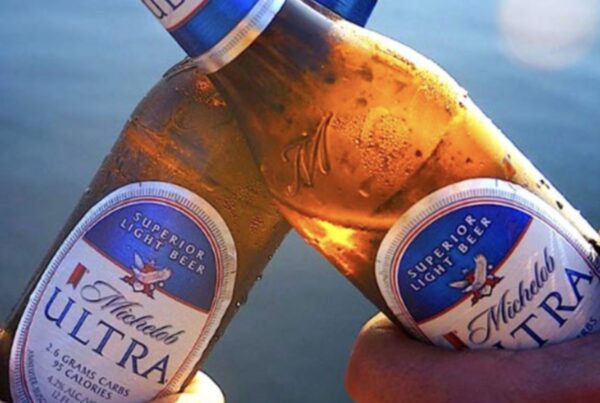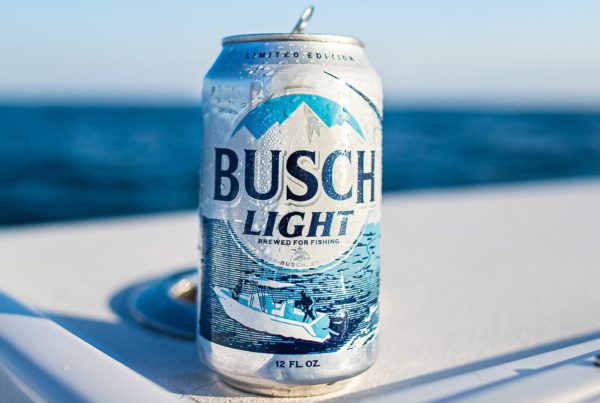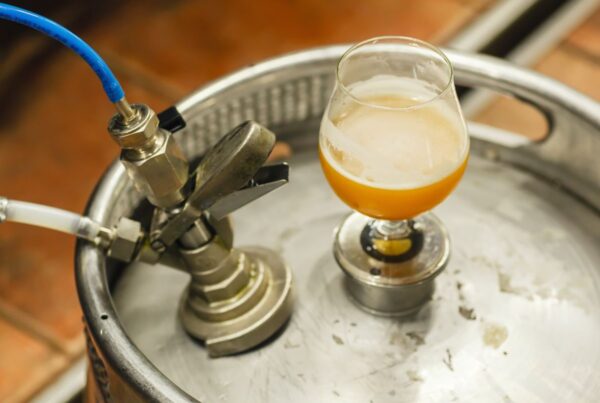What Exactly Makes a Beer a Craft Beer?
The term “craft beer” might bring to mind “beer snobbery,” but it’s not about making people feel superior when they order them. In reality, the term represents a commitment to creativity, experimentation, and quality over quantity.
In other words, a commitment to “the craft” of brewing.
But if we get down to the brass tacks, what’s considered a craft beer?
What Puts the Craft in Craft Beer?
The Brewers Association, the official custodians of craft beer in the United States, define what makes a brewer a craft brewer based on these three adjectives:
- Small – Breweries should produce 6 million barrels of beer or less per year.*
- Independent – The brewery should be free from any significant control or influence by a larger alcoholic beverage industry member (unless they’re a craft brewer themselves).
- Traditional – The majority of the brewery’s output should come from beers that derive their flavor from traditional or innovative brewing ingredients and their fermentation. In other words, real beer, not some marketing gimmick dressed up as beer.
*6 million barrels may sound like a lot of beer. But to put it into perspective, Anheuser-Busch Inbev produced approximately 500 million barrels in 2022. (Actually 498.99 million barrels, but that’s still a lot.)
Now that we’ve poured over the details of how craft beer is different from so-called “regular,” run-of-the-mill beer, let’s get a little deeper:
How Craft Beer is Different than “Regular Beer”
Craft beer can sound like a hipster’s drink order at a farm-to-table gastropub—”I’ll try the lavender-infused ale, please, and my friend here will try the oyster stout”—but it’s not about making strange brew just for the sake of it.
At its core, craft beer can be as simple as a beautifully executed American lager, or a flawlessly-balanced pale ale with the perfect amount of bitterness.
These beer styles may not always have exotic ingredients or blog headline-grabbing flavor profiles, but they can still reflect the skill, passion, and attention of the brewers behind them.
In the craft beer world, attention to the brewing process means much more than just eyeballing a kettle or giving the fermenting beer an occasional thumbs up. It’s about a dedication to detail—a meticulous care for the final product that can border on the obsessive.
You know your friend who alphabetizes the spices in their cabinet, or organizes their bookshelf by spine color? That’s your craft brewer, but with beer.
Sure, not every craft brewer scrutinizes the quality of every grain of malt and each and every hop like it was the Hope Diamond, but compared to the colossal beer-brewing juggernauts, there’s a tangible difference in the level of care and commitment.
Why Craft Beer Often Hits Your Wallet Harder
It’s a simple fact you’ve probably noticed—craft beer typically costs more than your standard-issue beer. If you’re a craft beer lover, you’ve probably noticed your wallet crying out in distress each time you head to the bar.
But why is that? Why is craft beer so expensive compared to “regular” beers?
Small Scale = Higher Costs
Craft brewers are the small fish in the big beer pond. They’re brewing on a smaller scale than the industry giants, and that means they don’t have the benefit of bulk purchasing or economies of scale. Everything from the ingredients, to brewing equipment, to beer labeling and packaging usually ends up costing smaller breweries more (on a per-unit basis).
Quality Ingredients Come with a Price Tag
Most craft breweries aren’t in the game to cut corners. They often source local, organic, or otherwise “specialty” ingredients, which typically come with heftier price tags. When your hops are plucked from the finest vines, the cost of the beer naturally rises.
Time is Money
Craft brewing isn’t a rush job. It’s a labor of love—and it can require a lot of babysitting for the brewer. Some styles of beer made by craft breweries can require weeks or even months to ferment and mature.
Taxes, Licensing, and Distribution
Smaller breweries face mountains of regulations, licenses, and taxes that can jack up their already-higher prices. And then there’s distribution. Smaller breweries often don’t have the network or the muscle to distribute their beer as widely or cheaply as the big guys, and those expenses trickle down to the craft beer drinker.
You’re Paying for the Experience
What’s the difference between buying a “regular beer” vs a “craft beer”? Ultimately, one is quick, convenient, and gets the job done, while the other is meant to be more of an “experience.”
It’s a little like the difference between ordering a turkey sub, and ordering an artisan, hand-crafted, slow-roasted, grass-fed turkey (who was likely named Burt and had a fulfilling life) sandwich, lovingly baked by a seventh-generation baker named Maurice. Neither choice is really better or worse—they just cater to different tastes and situations.
Final Thoughts
Craft brewing isn’t all about production volume and profit margins. It’s about endless tasting, tweaking, and fine-tuning to get things perfect. It’s late nights spent worrying if the craft lager has been “aged” just right or if the craft IPA has just the right level of bitterness. It’s about months, even years, spent perfecting beer recipes until they’re just right.
While not all craft breweries may be as meticulous as others, the underlying philosophy remains the same: craft beer is about quality over quantity, passion over profit, and perfecting a craft over achieving consistency.
These small-batch beer brewers aren’t just making beer; they’re crafting a drinking experience. So when you see one of these interesting-sounding craft beers on the menu, remember: buy the ticket, take the ride. You never know where it might take you.






